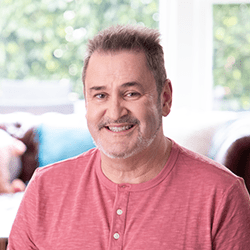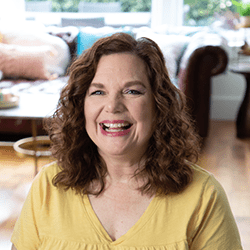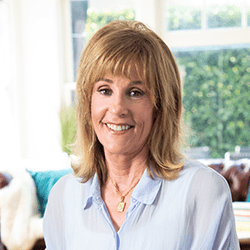Acknowledgment: This story is sponsored by Kite, a Gilead Company and is promoted through the Patient Worthy Collaborative Content program. We only publish content that embodies our mission of providing relevant, vetted, and valuable information to the rare disease community. If you would like to connect with others on your CAR T treatment journey, consider visiting Let’s Chat CAR T One-on-One. More details below!
The impact of a cancer diagnosis extends far beyond the physical. You might suddenly find yourself navigating the labyrinth of emotions, uncertainties, and life-altering decisions that come along with a diagnosis. This journey can be both isolating and overwhelming, leaving you feeling frightened and alone as you work to figure out treatment options and how to cope.
During these moments, the opportunity to connect with others is invaluable. Meeting others with your specific form of cancer, or who have experience with the treatment you are pursuing, can make all the difference. If you are a caregiver, learning from others how to pursue the right resources to help your loved one while also keeping yourself afloat can give you the strength to be your best self.
Let’s Chat CAR T One-on-One was developed as a resource for people who are living with certain types of blood cancers that are treatable with CAR T-cell therapy (CAR T), and their caregivers.
Through this program, you can connect with patients and caregivers like Darrin and Susan, spouses who have taken on Darrin’s blood cancer diagnosis, which is now in remission after CAR T-cell therapy. Or mentors such as Lisa, whose CAR T-cell therapy has changed her life following her blood cancer diagnosis.
What is CAR T-cell Therapy?
CAR T-cell therapy, sometimes called CAR T, uses your body’s own cells to fight cancer. It has been shown to help patients with certain blood cancers. After collecting your T cells, they are sent to a specialized facility and transformed into CAR T cells. These are then infused back into your body. The modified CAR T cells then support your immune system in finding and fighting cancer. Learn more about CAR T and how it works by clicking here.
Darrin and Susan: Coming to Terms with Cancer Diagnoses
The persons featured in this article are real patients and caregivers who experienced CAR T therapy. They are sponsored by Kite to share their stories. Their experience is unique to them and their stories are current as of January 2024. Individual results may vary.

In their 36 years together, high school sweethearts Darrin and Susan have created a wonderful life and a beautiful family: three daughters, and a granddaughter on the way in May 2024.
The pair have always prided themselves on their ability to seamlessly navigate life’s challenges together. But 2018 threw them for a loop as Darrin and Susan came face-to-face with a variety of health uncertainties.
After their daughter received a complicated gastrointestinal diagnosis, Darrin began experiencing random bouts of pain. One morning it was severe hip pain: the next, shoulder pain. Every day, whatever hurt the day before would stop—but something else would ache.
After coming down with a swollen spleen, Darrin was sent to the emergency room. Scans revealed that Darrin had multiple pelvic lesions. Later, he learned that he had a rare blood cancer. Susan shares:
“It took a week to learn that he had a chromosomal abnormality that meant his cancer would not stay in remission. His only choice for treatment, at the time, was a bone marrow transplant.”

Five months later, Darrin underwent his bone marrow transplant and continued into chemotherapy every two weeks. Because his cancer was aggressive, he spent one week in the hospital during his treatment, followed by 1-2 weeks at home.
During this time, Susan found it difficult to reprise her role as a caregiver. Her daughter’s treatment center was three hours north and Darrin’s was three hours south. Susan says:
“It was difficult to have to choose between my husband and my daughter. If they were both having trouble at the same time, I couldn’t do it all. I chose to take a leave of absence from work.”
On the third-year anniversary of Darrin’s bone marrow transplant, doctors discovered that the cancer had returned and infiltrated his spinal fluid. Darrin underwent radiation treatment from his head to his spine, and doctors opened the conversation about having another bone marrow transplant.
But another bone marrow transplant ended up being unneeded—because CAR T-cell therapy was put on the table.
Lisa’s Journey

In 2013, Lisa felt a lump in her neck. Her fear was palpable; both her mother and her sister previously were diagnosed with cancer. After testing, Lisa was too—though the process left her roiling with conflict and confusion. Frustratingly, nobody could give her a distinct diagnosis. She explains:
“My various diagnoses all conflicted; I was even sent to the National Institutes of Health (NIH) for further clarity. This made it difficult to treat because the treatment options weren’t clear, as nobody could officially declare what I had. The NIH told me that I had blood cancer and that I had a MYC gene rearrangement. This meant that my cancer would most likely continue to return despite a change in treatment courses.”
Even though Lisa had amazing friends and family in her corner, she began to struggle with feelings of anxiety and depression. She leaned on her growing faith, and the support her family provided her, but sometimes she felt alone and scared. Lisa explains:
“During the cancer journey, there is so much ugliness and isolation. You feel very alone. But now I can reflect on my journey and see the beauty that comes from that ugliness, and the reward. I was at my wit’s end when CAR T was introduced to me, but I can now say that I am in remission. I’m so excited that CAR T has moved up to a second-line defense treatment for some types of blood cancer rather than a last resort.”
Navigating CAR T Cell Treatment
Lisa underwent a targeted therapy and, three months later, a stem cell transplant. Her cancer returned within one month. When her doctors initially spoke to her about CAR T, she could not imagine going through another treatment that was super intense on her body. Lisa says:
“I am a firm believer in two things—faith and self-advocacy. I took it upon myself to seek additional opinions for my case and I’d strongly encourage others to do the same. It’s the only way to try and secure a second chance at living the life you deserve.”
Joining Let’s Chat CAR T One-on-One
Let’s Chat CAR T One-on-One connects you via phone with a patient or caregiver who has first-hand experience with CAR T. While you should always speak with your healthcare provider for medical or clinical information, this program offers the chance to speak with someone who has been through CAR T to provide information on the day-to-day experience of receiving the treatment. Chats are typically 30-60 minutes at a time. To learn more about this program, or to schedule a call, check out the Let’s Chat CAR T One-on-One website.
Lisa’s Mentorship Experience
To Lisa, becoming a mentor was an opportunity to pay it forward. When she was beginning her own CAR T treatment, she had the chance to speak with someone who changed her outlook. She explains:
“To voice my concerns to someone who understood was incredibly powerful and gave me hope. That I, too, could be someone sitting on the end of the phone offering support. Now, being a mentor, I get it. I’ve been there. Sometimes it isn’t about what you say, but about what you represent.”
One of the concerns that Lisa has spoken with other patients about includes the physical treatment burden and the potential for neurotoxicity, something she faced on her own journey. Sharing these moments can be difficult, but it is necessary:
“It is important for people to know that this can happen, but I’m also able to tell people that, through this program, they can teach their loved ones and caregivers too. My twin sister, who is a caregiver mentor for this program, was scared to see how I reacted to neurotoxicity, one of the potential side effects of CAR T. But she now knows, and can communicate, that this might be part of the process. When you have cancer, you need a caregiver, an advocate, who isn’t afraid to ask questions, or ask for proof, or get the doctor to explain what is going on.
The connection between patients is important, but it’s also incredibly necessary to help and educate those surrounding the patients. This program stands apart by providing an opportunity for caregivers to feel prepared and connected while dealing with this immense stress.”
Please note that that cytokine release syndrome (CRS) and neurotoxicity (NT) are two side effects that many CAR T patients have experienced and can become life-threatening. These are not all of the potential side effects of CAR T and each person’s experience and potential side effects will be different. Find out more about the potential side effects of CAR T therapy here.
Darrin and Susan’s Mentorship Experience
Darrin and Susan have often struggled with the question: “Why do bad things happen to good people?”
When Darrin saw the opportunity to join the Let’s Chat CAR T One-on-One Mentor Program, he jumped at the chance to share his experience with others. He feels fulfilled in making these connections and learning their stories.
Susan’s calls, as a caregiver mentor, are equally as meaningful and impactful. She notes:
“Patients deal with enough in the day-to-day. Caregivers are left in the lurch dealing with everything else. I know how hard it is and I want to help people. If I can meet someone where they are, that means the world to me to pass my insights along.”
Let’s chat about CAR T!
If you or a loved one are affected by a blood cancer diagnosis, CAR T may be a treatment option for you. To learn more about CAR T, visit LetsChatCART.com. To sign up for a call with a patient or caregiver like Darrin, Susan or Lisa click here to learn more about Let’s Chat CAR T One-on-One and schedule your call today!
KITE is a trademark of Kite Pharma, Inc. GILEAD is a trademark of Gilead Sciences, Inc.
©2024 Kite Pharma, Inc. All rights reserved.
US-UNB-00224 01/2024






